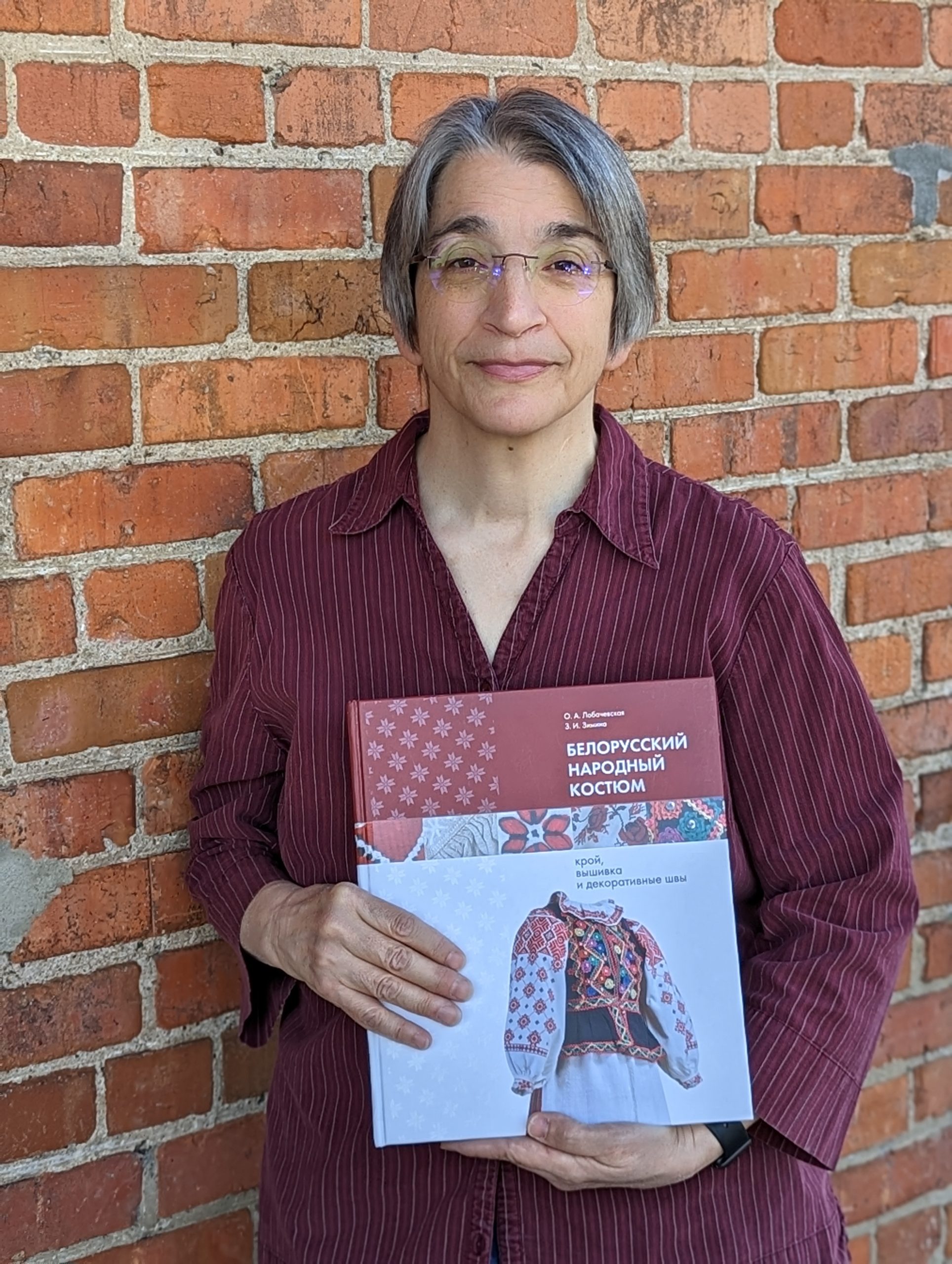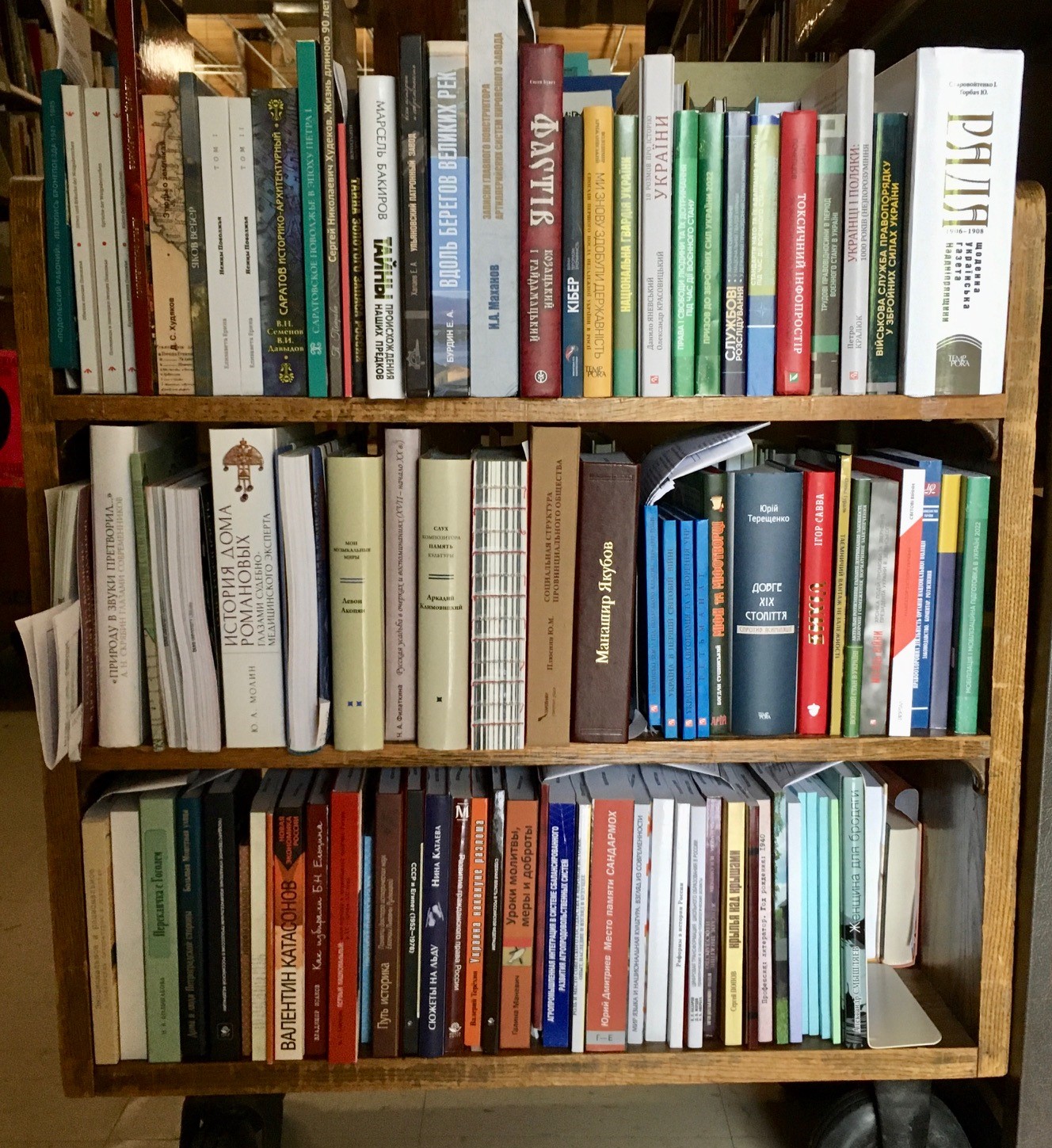
Hello. I’m Robin LaPasha, a library associate in the Non-Roman Languages Unit of Duke Libraries’ Monograph Acquisitions Department.
From the start of college at the University of Montana, I was drawn into the hobby of ‘international folk dancing.’ I have been learning East European and Balkan folk music, dance and crafts ever since—songs, tunes, dances (and folk costumes) from Russia west to Poland, and down through the Balkans to the Mediterranean. It led me to switch my major to Russian. After finishing that degree, my spouse and I moved back to the East Coast, to Durham. I got a master’s degree in Russian from UNC-CH, where I also worked as a student assistant in Davis Library. Then I completed a PhD in Russian literature from Duke, after a fall semester of dissertation research in Moscow libraries.
I started working at Duke Libraries in 2001, in the Perkins building, Acquisitions department. I handled a wide variety of languages and materials, but later I worked more specifically with Slavic vendors, setting up Russian and Ukrainian orders and copy cataloging. We moved from Perkins to the Smith building, and Duke’s Slavic collections added a Polish approval plan, and also expanded the original Russian approval plan to also provide Russian fiction, Ukrainian, Belarusian, and some Kazakh and Kyrgyz selections.
Here at the Smith building, I order books at the request of our Librarian for Slavic, Eurasian, and Eastern European Studies. As my colleagues do, I select a vendor, and place firm orders for the titles. For approval material, I review the offers from our contracted vendors (along with my selecting librarian), we usually approve (order) most or all of the titles if they are within our plan parameters and budgets, and I pay the invoices. I also communicate directly with the vendors concerning requests and problems (shipping errors, damage, etc.). On the more ordinary levels of cataloging and physical markup of the books, I copy-catalog the books (or send them along for more extensive cataloging), and I train student assistants to apply the labels and markings needed to prepare those books for use in Duke’s libraries.

As far as the “days” of my work, I appreciate the camaraderie in Smith. There are many kinds of good things happening, which stretch across our library’s receipts and processing areas. The first situation is obvious in a library context—every few months, someone in Smith opens a newly-arrived box in their normal receipts and finds what turns out to be a visually unusual and interesting book. Immediately we all huddle around for a few minutes to see it; the urge is irresistible. Or, a morning dog visit to the parking lot is declared, and many of us exit Smith bays 9 and 10 for puppy appreciation.
The second kind of a good thing we have in Smith building is that our teams work smoothly and generously across the departments. For example, on behalf of our selecting librarians, we in Non-Roman languages occasionally place orders with our vendors to be received by other teams (such as ERSA) or vice versa, and Resource Description team members help with original cataloging for our rush titles… it is an appreciated sharing of skills and labor across our Smith bays.

For my own job in particular, although I enjoy both reviewing the orders and processing the boxes of books that follow, I most of all want to get those books ready for transport to their next library destinations—for their next reader.
Our Slavic approval plans begin with Russian, but do not end there. There are multiple vendors, plan agreements, budgets, and languages. The materials have diverse topics in most languages. Those languages are (alphabetically) – Belarusian, Kazakh, Polish, Russian, Ukrainian—and many, many more.
Check out Белорусский народный костюм : крой, вышивка и декоративные швы and thousands more at Duke University Libraries today!

